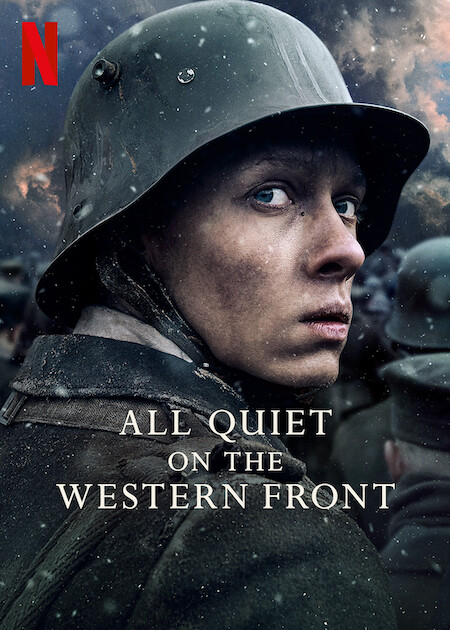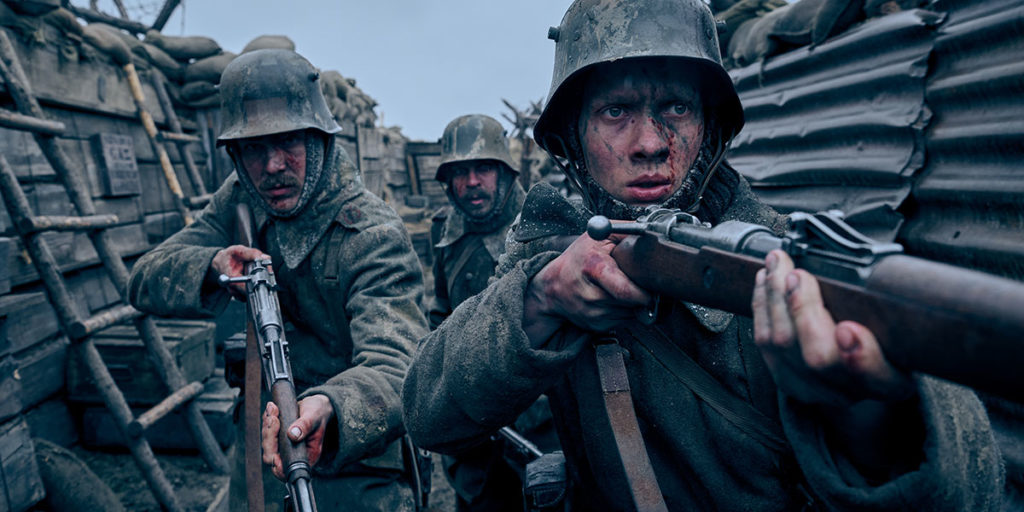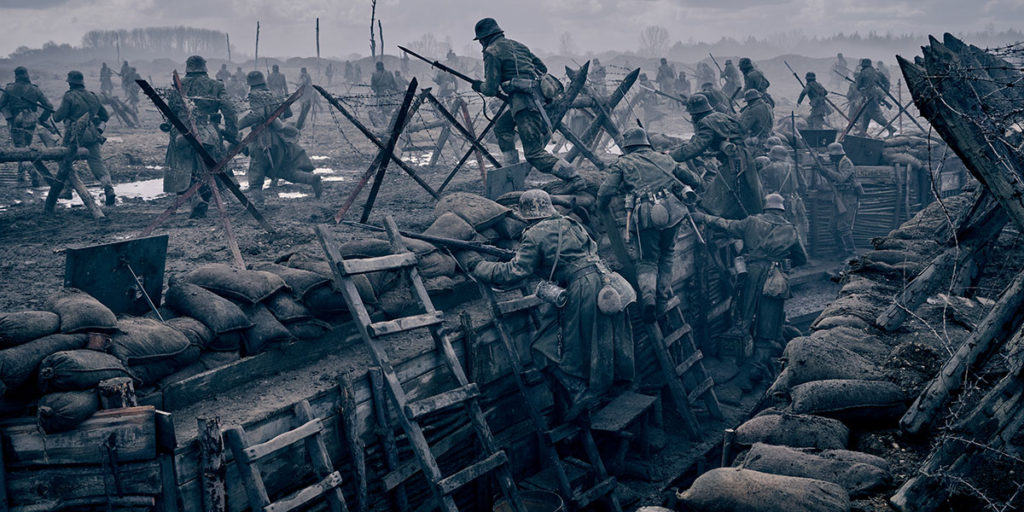
It’s staggering to think how futile war can be, with soldiers dying regularly in the pursuit of a conflict that will almost surely end in defeat for one side, meaning that all they have gained and accomplished in the process of their fighting may be undone. This isn’t specific to any one war, but in the case of a world war where so many countries and armies are involved, the number of casualties is horrifying. Germany’s official Oscar submission for Best International Feature, All Quiet on the Western Front, follows one young soldier as he experiences war and the loss of so many people around him while fighting for a country he loves.
In 1917, Paul (Felix Kammerer) signs his own parental permission slip so that he can join his friends in what they’ve all wanted so long to do: enlist and fight in the war. He is promptly accepted and shipped off to French territory, where he finds himself immediately in a trench and struggling to stay alive as he watches his friends being shot and blown up around him. He endures cold and terror as government officials make slow progress in achieving a ceasefire, well aware that every minute they delay in surrendering means more soldiers on both sides will be needlessly killed.

This film is based on the 1929 novel by Erich Maria Remarque that was adapted the following year into a Best Picture-winning film directed by Lewis Milestone and was also made into a TV movie. It’s incredible to think of just how recent the book and film’s events were at the time of their creation, and how World War II, an even larger and more unimaginable conflict, had not yet come to pass. Having a century in between World War I and this film allows for deeper reflection on its content, though sadly little has changed aside from the way that war is waged, which can now be even more destructive and without purpose.
Presenting this story from a German perspective adds a dimension of national pride, which is hardly a point of positivity because it shows the eagerness with which teenagers sign up to fight, unaware of how dangerous and deadly it can be. Knowing the war will be lost also makes it feel even more futile, though for Paul, he knows nothing of the workings of the negotiating parties and must obey his commanders, regardless of how desperate, destitute, and terrified he may be.

There is a loud, furious, electronic score that plays frequently throughout the film, translating into sound the night of an army charging forward with every intent to kill an enemy and the inescapable nature of the battlefield. Paul at one point raises his helmet on a rifle from within a trench and sees it immediately fired on, confirming to him that he is trapped. There is also fear present in the air when tanks began barreling down the fields and enemy soldiers wield weapons that spray fire, setting his fellow Germans aflame. War is not what Paul thought, but he has no choice but to do what we he can to survive at every turn.
Edward Berger’s film has a gritty and realistic feel to it, unconcerned with grand cinematic scenes and instead tethered almost fully to Paul’s experiences. The interludes to the surrender process serve to emphasize the disparity of conditions for those fighting and those forcing them to fight, stealing animals from farms to eat something other than bread while a full buffet is prepared for the bureaucrats sitting comfortably by warm fires. This film serves as a harsh critique of war without delegitimizing the sacrifice made by those who have died and the harrowing, unforgettable torment inflicted upon those who survive.
Grade: B+
Check out more of Abe Friedtanzer’s articles.
Following its world premiere at the Toronto International Film Festival, All Quiet on the Western Front will debut on Netflix on October 28th.

